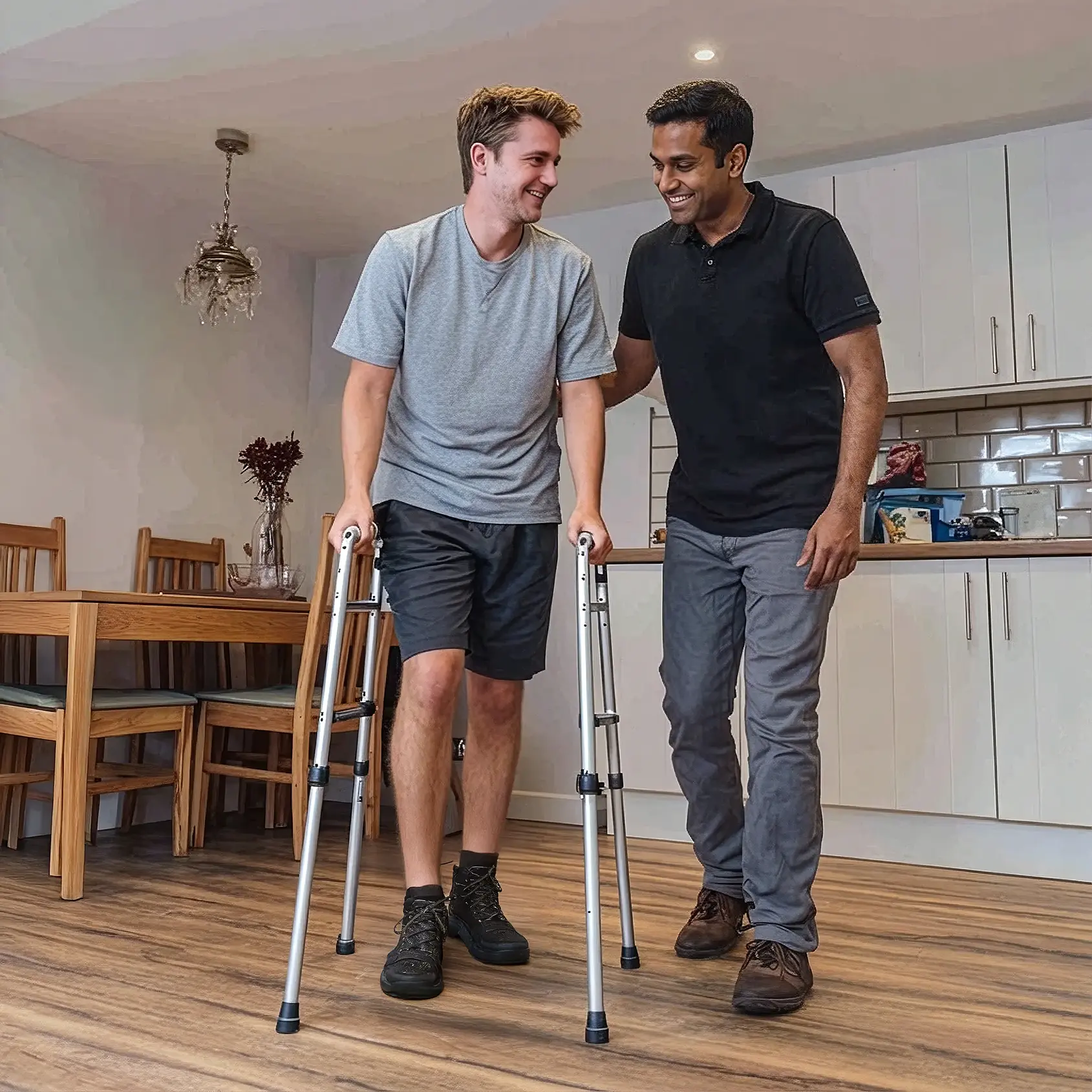Careers
23 Jul 2025
What Does a Community Nurse Do? Your Complete Guide
Nursing Career Guide

Core Responsibilities of Community Nurses
Patient Care and Assessment
Conduct thorough health assessments in patients' homes
Monitor chronic conditions like diabetes, heart disease, and respiratory issues
Administer medications and injections safely
Provide wound care and dressing changes
Support post-operative recovery
Health Education and Prevention
Teach patients and families about medication management
Provide guidance on diet and lifestyle changes
Deliver health screenings and vaccinations
Offer advice on managing long-term conditions
Support mental health and wellbeing
Care Coordination
Work with GPs, specialists, and social services
Plan discharge from hospital to home
Arrange additional support services when needed
Maintain detailed patient records
Communicate with family members and carers
Who Benefits from Community Nursing
Community nurses support a wide range of people:
Elderly patients managing multiple health conditions Adults with disabilities maintaining independence at home Patients recovering from surgery or illness People with chronic conditions needing ongoing support Families caring for loved ones with complex needs
Skills Every Community Nurse Needs
Clinical Expertise
Advanced assessment skills
Medication administration
Wound care techniques
Infection control knowledge
Emergency response training
Communication Skills
Clear explanation of medical information
Active listening with patients and families
Professional collaboration with healthcare teams
Documentation and record-keeping
Cultural sensitivity and awareness
Personal Qualities
Empathy and compassion
Problem-solving abilities
Time management skills
Adaptability in various home environments
Resilience and emotional strength
Becoming a Community Nurse
Qualifications Required
Registered Nurse (RN) qualification
Community nursing specialist training
Valid nursing registration
Enhanced DBS check
Full UK driving licence (typically required)
Career Progression
Community nursing offers diverse career paths:
Senior community nurse roles
Specialist practitioner positions
Team leadership opportunities
Advanced clinical practice
Management and training roles
The Rewards of Community Nursing
Working as a community nurse offers unique benefits:
Direct patient impact - See the real difference your care makes Work variety - Every day brings different challenges and locations Professional autonomy - Make clinical decisions independently Flexible working - Many positions offer part-time or flexible hours Career development - Strong progression opportunities in community healthcare
Start Your Community Nursing Career
Ready to make a difference in your community? Explore community nursing opportunities with healthcare providers who value compassionate, skilled professionals.
Key takeaways:
Community nurses provide vital healthcare services in patients' homes
The role combines clinical skills with health education and coordination
Strong communication and empathy are essential qualities
Career progression opportunities are excellent in community healthcare
Making a direct impact on patient lives is deeply rewarding
Frequently Asked Questions
What's the difference between a community nurse and a district nurse? District nurses are a type of community nurse with additional qualifications and leadership responsibilities. They often manage caseloads and supervise other community healthcare staff.
Do community nurses work weekends? Many community nursing services operate seven days a week. Shift patterns vary by employer and may include weekend and evening work.
What equipment do community nurses use? Community nurses carry portable medical equipment including blood pressure monitors, wound care supplies, medication, and documentation tools.
How much do community nurses earn? Salaries vary by experience and location, typically ranging from NHS Band 5 to Band 7 rates, with additional allowances for travel and unsocial hours.

What's the Difference Between a Staffing Agency and a Regulated Care Provider?
And why it matters more than you might think

Why work in healthcare?
7 reasons it could be the right move

Dignity in Action
Why Respect Matters Most in Home Care












